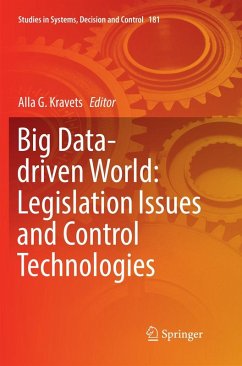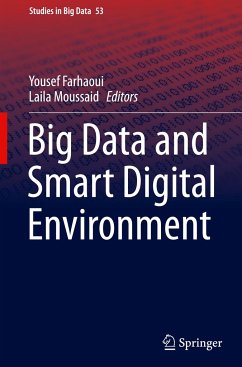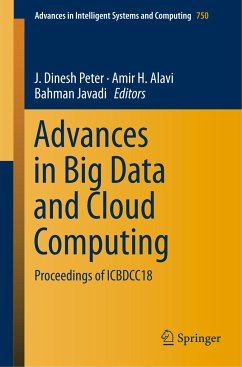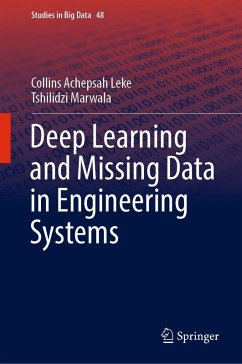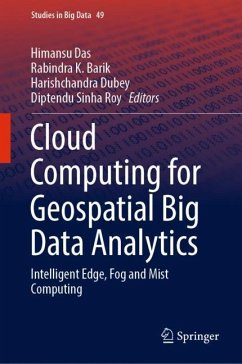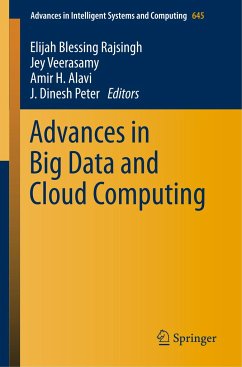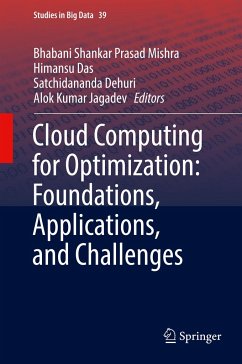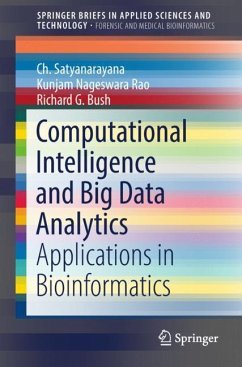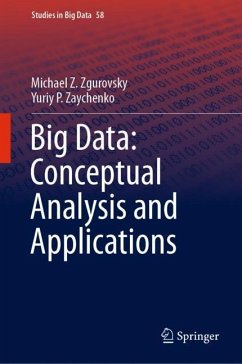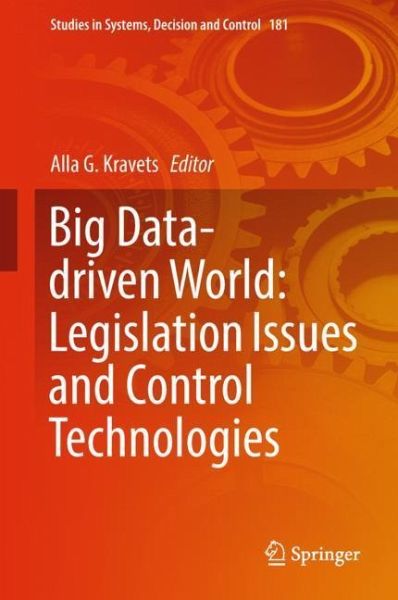
Big Data-driven World: Legislation Issues and Control Technologies

PAYBACK Punkte
38 °P sammeln!
This book examines the methodological foundations of the Big Data-driven world, formulates its concept within the frameworks of modern control methods and theories, and approaches the peculiarities of Control Technologies as a specific sphere of the Big Data-driven world, distinguished in the modern Digital Economy. The book studies the genesis of mathematical and information methods' transition from data analysis & processing to knowledge discovery and predictive analytics in the 21st century. In addition, it analyzes the conditions of development and implementation of Big Data analysis appro...
This book examines the methodological foundations of the Big Data-driven world, formulates its concept within the frameworks of modern control methods and theories, and approaches the peculiarities of Control Technologies as a specific sphere of the Big Data-driven world, distinguished in the modern Digital Economy. The book studies the genesis of mathematical and information methods' transition from data analysis & processing to knowledge discovery and predictive analytics in the 21st century. In addition, it analyzes the conditions of development and implementation of Big Data analysis approaches in investigative activities and determines the role and meaning of global networks as platforms for the establishment of legislation and regulations in the Big Data-driven world.
The book examines that world through the prism of Legislation Issues, substantiate the scientific and methodological approaches to studying modern mechanisms of terrorism and extremism counteraction in the conditions of new challenges of dissemination and accessibility of socially dangerous information. Systematization of successful experience of the Big Data solutions implementation in the different countries and analyze causal connections of the Digital Economy formation from the positions of new technological challenges is performed.
The book's target audience includes scientists, students, PhD and Master students who conduct scientific research on the topic of Big Data not only in the field of IT& data science, but also in connection with legislative regulation aspects of the modern information society. It also includes practitioners and experts, as well as state authorities and representatives of international organizations interested in creating mechanisms for implementing Digital Economy projects in the Big Data-driven world.
The book examines that world through the prism of Legislation Issues, substantiate the scientific and methodological approaches to studying modern mechanisms of terrorism and extremism counteraction in the conditions of new challenges of dissemination and accessibility of socially dangerous information. Systematization of successful experience of the Big Data solutions implementation in the different countries and analyze causal connections of the Digital Economy formation from the positions of new technological challenges is performed.
The book's target audience includes scientists, students, PhD and Master students who conduct scientific research on the topic of Big Data not only in the field of IT& data science, but also in connection with legislative regulation aspects of the modern information society. It also includes practitioners and experts, as well as state authorities and representatives of international organizations interested in creating mechanisms for implementing Digital Economy projects in the Big Data-driven world.





